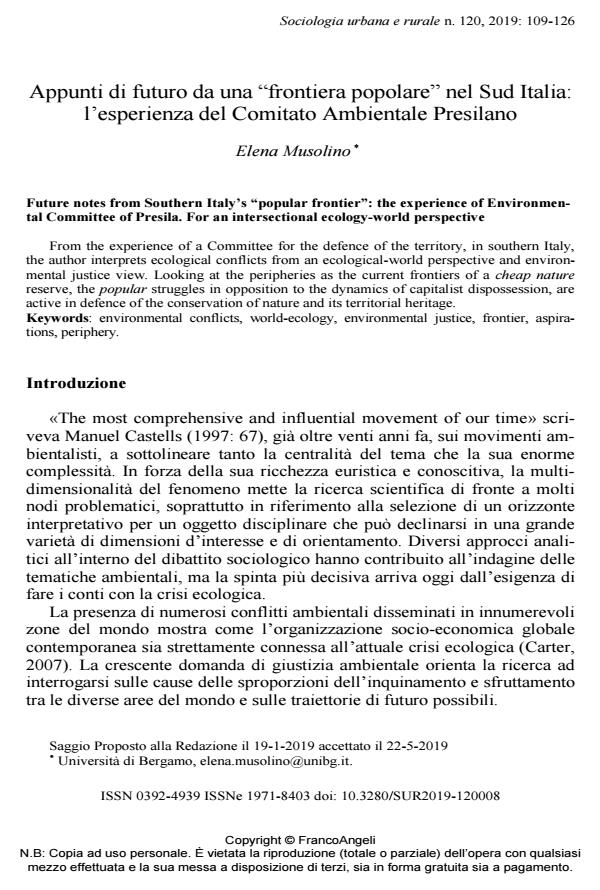Future notes from Southern Italy’s "popular frontier": the experience of Environmental Committee of Presila. For an intersectional ecology-world perspective
Journal title SOCIOLOGIA URBANA E RURALE
Author/s Elena Musolino
Publishing Year 2019 Issue 2019/120
Language Italian Pages 18 P. 109-126 File size 466 KB
DOI 10.3280/SUR2019-120008
DOI is like a bar code for intellectual property: to have more infomation
click here
Below, you can see the article first page
If you want to buy this article in PDF format, you can do it, following the instructions to buy download credits

FrancoAngeli is member of Publishers International Linking Association, Inc (PILA), a not-for-profit association which run the CrossRef service enabling links to and from online scholarly content.
From the experience of a Committee for the defence of the territory, in southern Italy, the author interprets ecological conflicts from an ecological-world perspective and environmental justice view. Looking at the peripheries as the current frontiers of a cheap nature reserve, the popular struggles in opposition to the dynamics of capitalist dispossession, are active in de-fence of the conservation of nature and its territorial heritage.
Keywords: Environmental conflicts, world-ecology, environmental justice, frontier, aspira-tions, periphery.
Elena Musolino, Appunti di futuro da una "frontiera popolare" nel Sud Italia: l’esperienza del Comitato Ambientale Presilano in "SOCIOLOGIA URBANA E RURALE" 120/2019, pp 109-126, DOI: 10.3280/SUR2019-120008